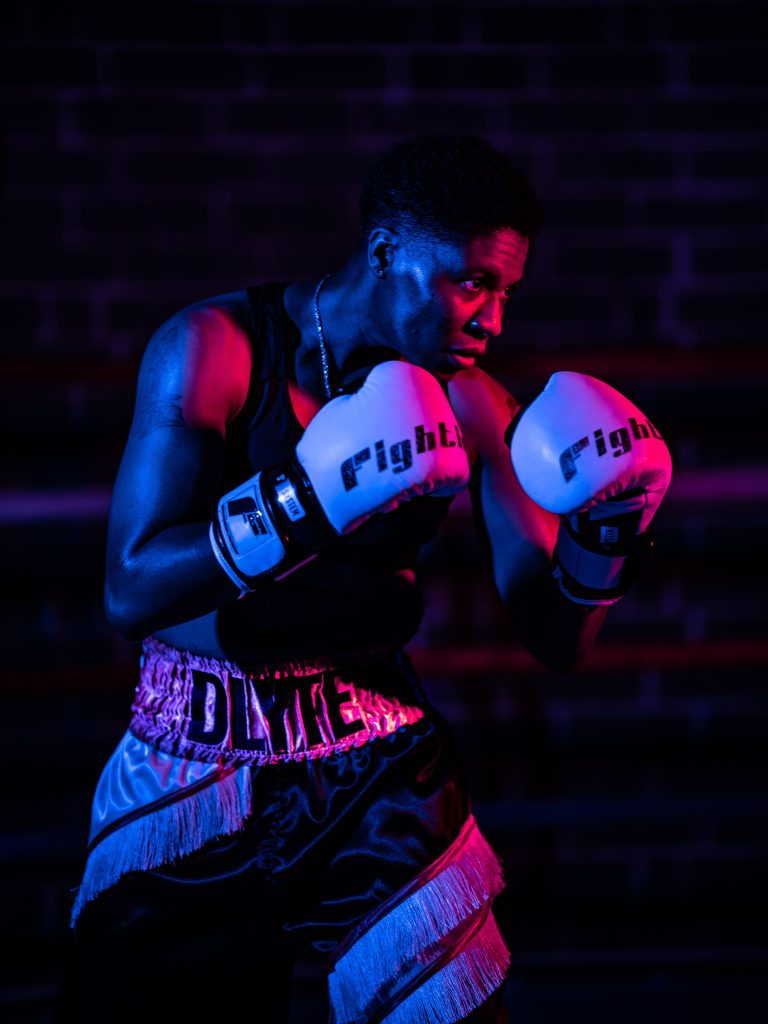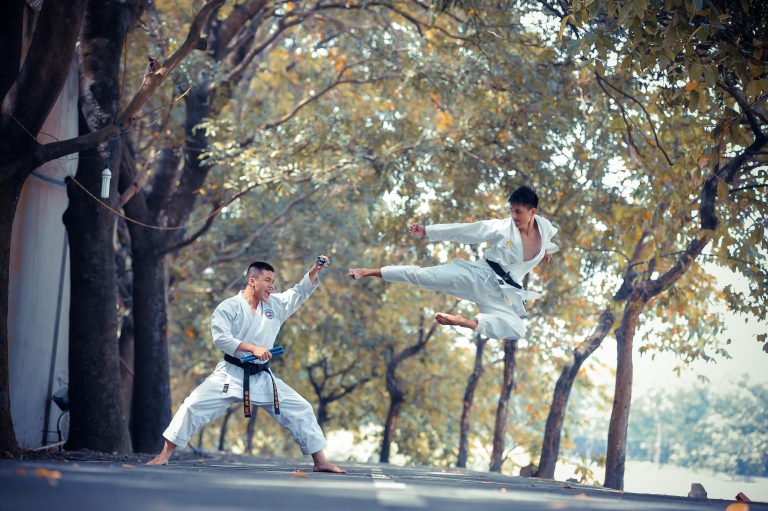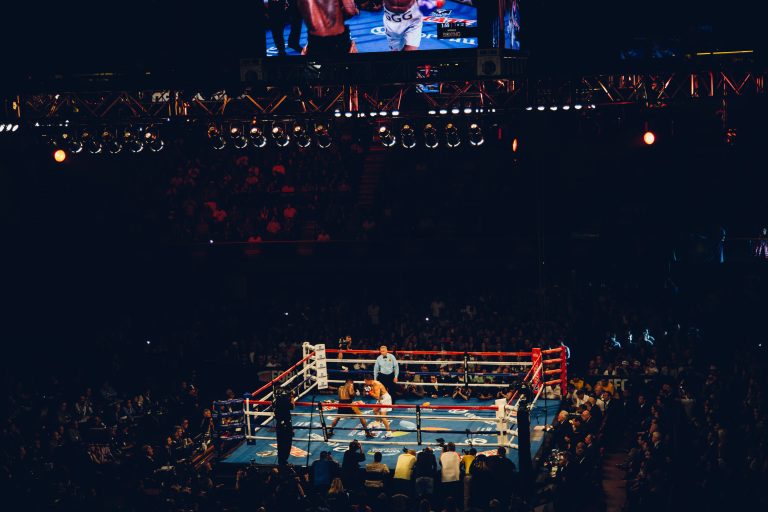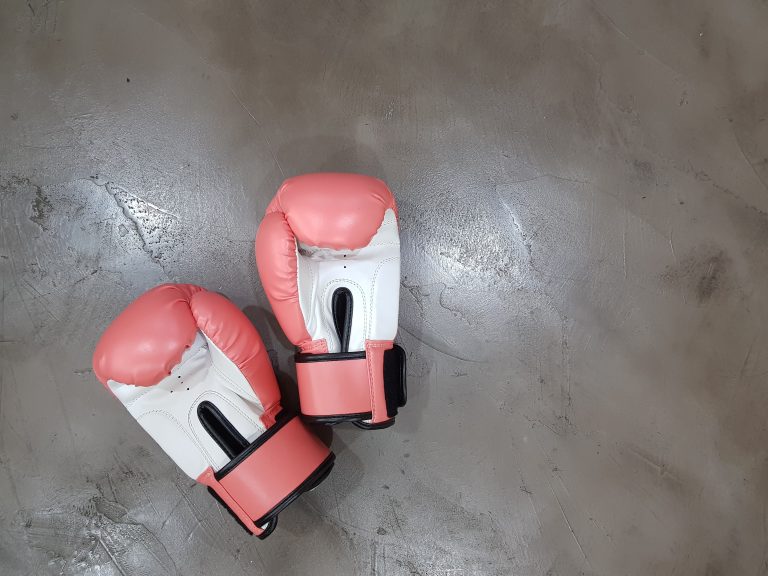Ist Karate gut für autistische Kinder?
Autismus ist eine Entwicklungsstörung, die sich auf die sozialen und kommunikativen Fähigkeiten eines Kindes auswirkt. Autistische Kinder haben Schwierigkeiten, mit anderen Menschen zu interagieren und ihre Emotionen auszudrücken.
Karate ist eine Kampfkunst, die aus verschiedenen Techniken wie Tritte, Schläge und Blöcke besteht. Viele Eltern autistischer Kinder interessieren sich für Karate und fragen sich, ob es ihrem Kind helfen kann.
Vorteile von Karate für autistische Kinder
Es gibt tatsächlich einige Vorteile, die autistische Kinder von Karate haben können:
- Verbesserung der motorischen Fähigkeiten: Karate beinhaltet eine Vielzahl von Bewegungen, die die Motorik und Koordination fördern können.
- Steigerung der Selbstachtung: Karate kann dazu beitragen, das Selbstbewusstsein und Selbstvertrauen von Kindern zu erhöhen, indem es ihnen ein Gefühl von Stärke und Fähigkeit vermittelt, die sie vorher nicht hatten.
- Stärkung sozialer Fähigkeiten: Im Karate werden Respekt, Höflichkeit und Durchhaltevermögen gelehrt, die für autistische Kinder von großem Nutzen sein können.
Was sollten Eltern beachten?
Obwohl Karate für autistische Kinder viele Vorteile haben kann, sollten Eltern einige Dinge beachten:
- Qualität der Lehrer: Die Qualität des Karatelehrers ist sehr wichtig. Eltern sollten sicherstellen, dass der Lehrer Erfahrung im Umgang mit autistischen Kindern hat und in der Lage ist, auf ihre spezifischen Bedürfnisse einzugehen.
- Schwierigkeitsgrad des Trainings: Eltern sollten sicherstellen, dass das Karatetraining für ihr Kind angemessen ist und dass das Kind nicht überfordert wird.
- Individuelle Unterschiede: Autistische Kinder sind individuell und haben unterschiedliche Bedürfnisse. Was für ein Kind funktioniert, kann für ein anderes Kind nicht funktionieren. Eltern sollten die Bedürfnisse ihres Kindes berücksichtigen und Vorurteile vermeiden.
Fazit
Karate kann für autistische Kinder von Vorteil sein, sofern das Training angemessen gestaltet ist und die Bedürfnisse des Kindes berücksichtigt werden. Es ist jedoch wichtig, dass Eltern sich Zeit nehmen, den richtigen Karatelehrer zu finden und sicherzustellen, dass das Training für ihr Kind geeignet ist. Mit der richtigen Unterstützung kann Karate eine lohnende Erfahrung für autistische Kinder sein.
Is Karate beneficial for Autistic Children?
Karate is a traditional Japanese martial art that provides many benefits for both physical and mental health. It is also a great way for children to develop their confidence, discipline, and coordination. It is said that Karate is an excellent way for autistic children to learn social interaction and self-control. However, parents may have questions about the effectiveness of Karate for autistic children. Let us cover some of the most Frequently Asked Questions about how Karate can benefit autistic children.
What is Autism?
Autism Spectrum Disorder (ASD) is a neurological and developmental disorder that affects communication, social interaction, behavior, and cognitive function. Autism has a wide range of symptoms and severity, and it can be challenging for the families of children who are on the spectrum. Children with autism have difficulty understanding social cues, communicating, and making friends. They may also show repetitive behaviors and have a hard time adapting to changes in routines.
How can Karate help?
Karate focuses on self-discipline, self-control, and respect. The repetitive nature of Karate’s movements and overall structure could provide familiarity to children with autism. The consistency of the practice can help develop skills such as focus and attention. Karate also promotes fitness and gross motor skills. Instructors trained in teaching autistic students can adjust training methods and be patient with developmentally challenged children, which could improve their attention and self-esteem.
What are the benefits of Karate training for autistic children?
Karate enhances the physical, mental, and emotional health of children. For autistic children, Karate’s benefits may include improving social interaction skills, communication, and coping strategies. Karate practice can also improve focus, balance, and coordination, which can be issues for some autistic children. Karate classes can also provide an opportunity for autistic children to develop friendships with their peers, as well as foster a sense of community that is important for their development.
Can Karate cause overstimulation for autistic children?
It is essential that instructors understand the unique challenges and needs of autistic children. Overstimulation in group settings can cause frustration and anxiety in some autistic children. It is crucial to provide a safe, quiet space for children to calm down if needed. Autistic children can benefit from sensory inputs that Karate provides, like deep pressure and proprioceptive input as they learn to control the pressure in their strikes and blocks. Instructors can suggest breaking practice routine into smaller, manageable steps to lower the likelihood of sensory overload.
Can Karate help with sensory processing issues in autistic children?
Karate can help improve attention, focus, coordination, and increase body awareness; these benefits might impact the sensory processing of an autistic child. Karate practice could improve a child’s ability to filter sensory input and develop various motor skills. By training sensory processing systems, Karate can enhance a child’s performance in other activities of daily living.
What should parents look for in a Karate program for autistic children?
When selecting a Karate program for their autistic child, parents should look for structured classes that use positive reinforcement and focus on social interaction, balance, and coordination-building. Instructors certified in teaching autistic children are the most qualified to teach them. Parents need to ensure that the instructor focuses on skills building appropriate to the child’s development level and provides individualized instruction as needed. Instructors trained to teach autistic children should understand and create a safe space for sensory input and provide physical and emotional support to the child and the family.
Conclusion
Karate can be beneficial for autistic children, and parents should consider the physical, mental, and social benefits that it can provide when selecting activities for their child. Karate can improve coordination, sensory processing, attention, and focus and provide a sense of community. Instructors trained in teaching autistic children can modify instruction and create a safe, positive environment for autistic children. Parents should consider seeking out Karate programs designed explicitly for autistic children to ensure the best outcomes for their child’s participation.
Inhaltsverzeichnis






